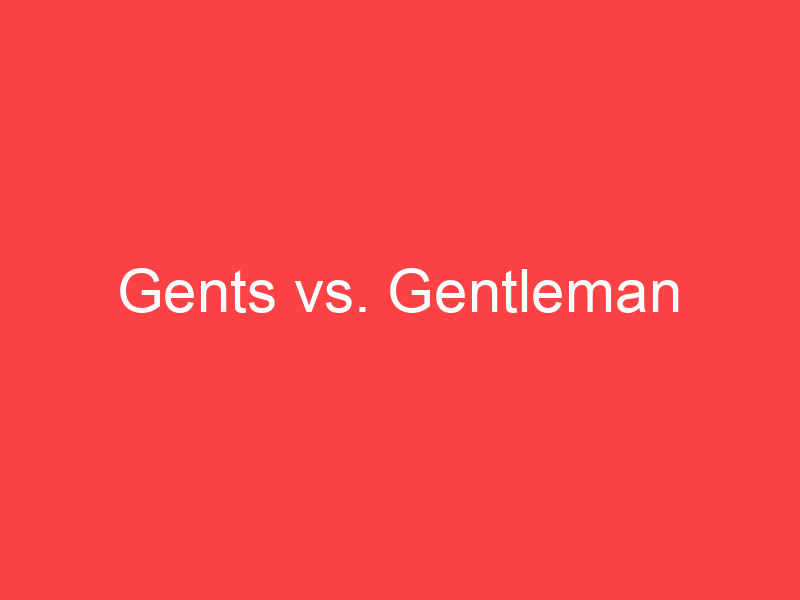
-
Gentleman
In modern parlance, a gentleman (from gentle + man, translating the Old French gentilz hom) is any man of good, courteous conduct. A gentleman may also simply be a polite term for any man, as in indications of gender-separated facilities, or as a sign of the speaker’s own courtesy when addressing others. The modern female equivalent is lady.
Originally, a gentleman was a man of the lowest rank of the English gentry, standing below an esquire and above a yeoman. By definition, this category included the younger sons of the younger sons of peers and the younger sons of baronets, knights, and esquires in perpetual succession, and thus the term captures the common denominator of gentility (and often armigerousness) shared by both constituents of the English aristocracy: the peerage and the gentry. In this sense, it corresponds to the French gentilhomme (“nobleman”), which in Great Britain, has long meant only the peerage. Maurice Keen points to the category of “gentlemen” in this context as thus constituting “the nearest contemporary English equivalent of the noblesse of France”. The notion of “gentlemen” as encapsulating the members of the hereditary ruling class was what the rebels under John Ball in the 14th century meant when they repeated:
When Adam delved and Eve span,
Who was then the gentleman?
John Selden, in Titles of Honour (1614), discussing the title gentleman, likewise speaks of “our English use of it” as “convertible with nobilis” (an ambiguous word, noble meaning elevated either by rank or by personal qualities) and describes in connection with it the forms of ennobling in various European countries.
By social courtesy the designation came to include any well-educated man of good family and distinction, analogous to the Latin generosus (its usual translation in English-Latin documents, although nobilis is found throughout pre-Reformation papal correspondence). To a degree, gentleman came to signify a man with an income derived from property, a legacy, or some other source, who was thus independently wealthy and did not need to work. The term was particularly used of those who could not claim any other title or even the rank of esquire. Widening further, it became a politeness for all men, as in the phrase Ladies and Gentlemen,….
-
Gents (noun)
A men’s room: a lavatory intended for use by men.
“Where is the gents? I need a slash.”
-
Gents (adjective)
Men’s: intended for use by men.
-
Gentleman (noun)
A man of gentle but not noble birth, particularly a man of means (originally ownership of property) who does not work for a living but has no official status in a peerage; an armiferous man ranking below a knight.
“Being a gentleman, Robert was entitled to shove other commoners into the gongpit but he still had to jump out of the way of the knights to avoid the same fate himself.”
-
Gentleman (noun)
Any well-bred, well-mannered, or charming man.
-
Gentleman (noun)
An effeminate or oversophisticated man.
“Well, la-di-da, aren’t you just a proper gentleman?”
-
Gentleman (noun)
Any man.
“Please escort this gentleman to the gentlemen’s room.”
-
Gentleman (noun)
An amateur or dabbler in any field, particularly those of independent means.
-
Gentleman (noun)
An amateur player, particularly one whose wealth permits him to forego payment.

